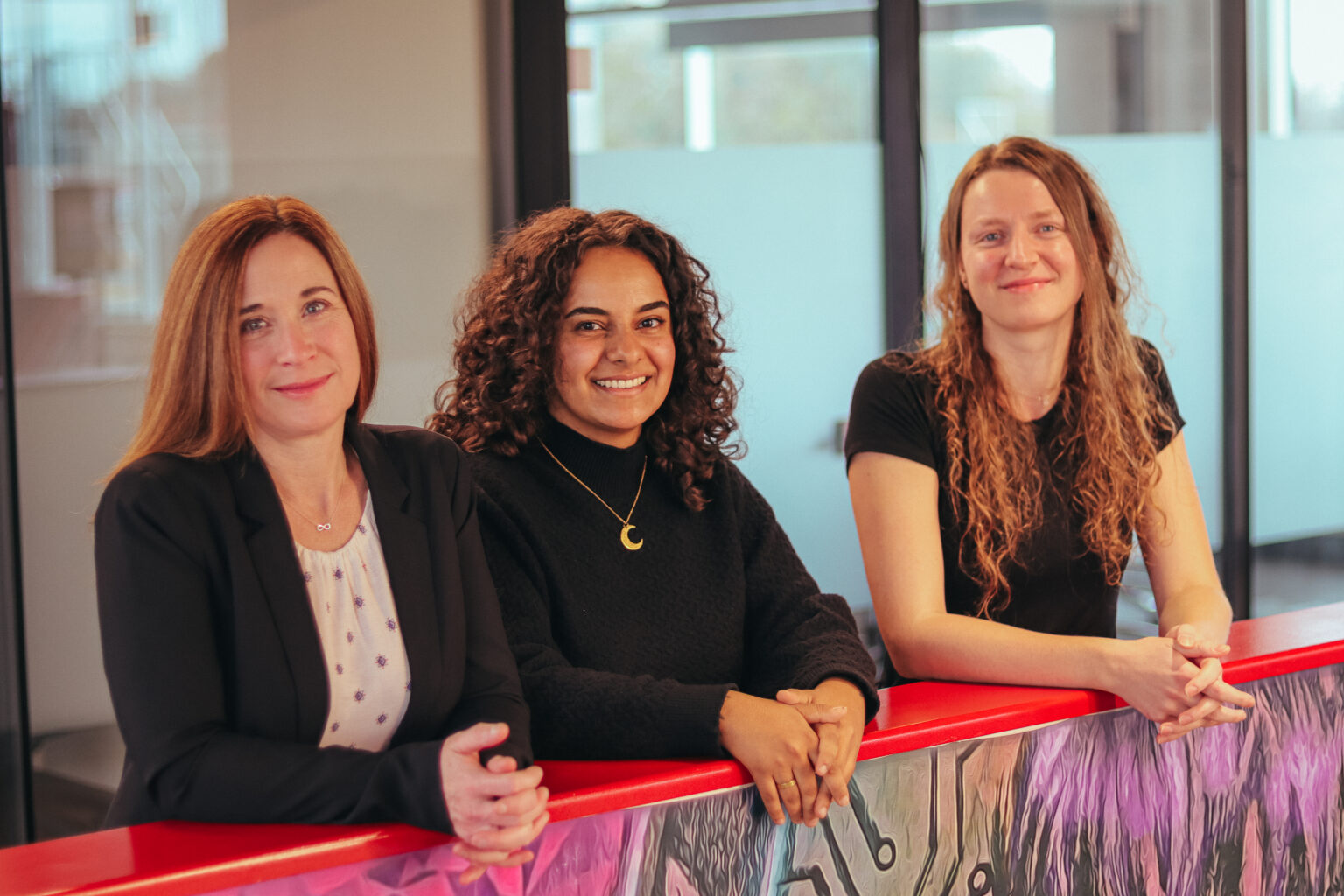Clinical Services
The Valor & Solutions clinical team is a bilingual non-profit organization based in Ottawa serving the Eastern Region (Prescott-Russell, Stormont, Dundas & Glengarry, Ottawa and Renfrew County). Our services are offered to adults (18+) with an intellectual disability or dual diagnosis who present with behaviours that challenge, complex medical needs or justice involvement.
We are a mobile service that offers support to individuals, their family, and their extended circle of support which allows our team to meet individuals in the comfort of their environment. Through consultation, education, coaching, on-site support and practical interventions, we provide recommendations to the circle of support to reduce the challenges and enhance the individual’s quality of life.
Our Services
Accessing Our Services
REFERRAL
Eligibility determined by Developmental Services Ontario (DSO)
INTAKE
Valor & Solutions contacts the individual upon receiving DSO referral.
CNSC
Complex Support Coordination, healthcare facilitation and justice coordination.
QUICK RESPONSE
A single session is offered.
GROUPS
The Skills System & Relationship and Intimacy.
BRIEF SERVICES
Specialized clinical services to meet individual's needs.
A Deliberate Matching Process
At Valor & Solutions, we recognize that each individual referred to us presents unique skills and support needs, a principle that holds true within our team as well. Our diverse team brings together professionals with various backgrounds and skill sets, ranging from expertise in communications, counselling, conflict resolution, healthcare and social work, to navigation systems.
Our goal is to assign a dedicated team member capable of delivering all requested services, streamlining the support process and minimizing the number of employees involved to enhance the quality of life of the individual and their circle of supports.




Quick Response
Our team will arrange single sessions within one month of receiving a referral to offer brief intervention, aiming to quickly address significant concerns presented at the time. These sessions are strengths-based and solution-focused. Our objective is to work with you, utilizing your individual skills and resources, to form an action plan, brainstorm ideas, and equip you and your circle of support with practical tools and strategies to address the concerns in a manageable way.
Brief Services
The Brief Services program helps identify the strengths and needs of individuals, along with the social and medical factors that may contribute to behaviours that challenge. Services are solution-focused and short-term (2 to 3 months). Collaboratively, a clinician will work with the individual and their support person to assess and determine the best combination of resources and tools to implement based on the level of needs and presenting concerns.


Our Approach
An Intentional Approach
Our team provides personalized support in one of the areas listed below on a case-by-case basis:
- Clinical Services – Behaviour Support Services
- Systems Navigation
- Justice Coordination
The service philosophies and approaches that guide our work include, but are not limited to, Social Role Valorization (SRV), Person-Directed Thinking, Culture of Gentleness, Trauma Informed Approach, Skills System and the Biopsychosocial Model.


What Informs Our Practice
The people we support may be in situations where they are not full members of their communities because of the behavioural concerns. Individuals being referred to Valor & Solutions’ clinical services present with challenging behaviours and complex needs that impact their overall quality of life.
Many factors can contribute to these behavioural concerns:
References
Balogh, R., Ouellette-Kuntz, H., Bourne, L., Lunsky, Y., & Colantonio, A. (2008). Organising healthcare services for persons with an intellectual disability (Review). Cochrane Database of Systematic Reviews, Issue No. 4, 1-39.
Berney, T., & Allington-Smith, P. (2010). Psychiatric Services for Children and Adolescents with Intellectual Disabilities. Royal College of Psychiatrists. College Report CR163.
Emerson E., & Einfeld S.L. (2011). Challenging Behaviour (3rd ed.). New York: Cambridge University Press.
Fletcher J.M., Lyon G.R., Fuchs L.S., & Barnes M.A. (2007). Learning Disabilities: From Identification to Intervention. New York: The Guilford Press.
Joyce, Theresa. (2006). Functional Analysis and Challenging Behaviour. Psychiatry, 5(9), 312 -315.
Lennox, N., Taylor, M., Rey-Conde, T., Bain, C., Boyle, F., & Purdie, D. (2004). Ask for it: Development of a Health Advocacy Intervention for Adults with Intellectual Disability and their General Practitioners. Health promotion international, 19(2), 167-175.
National Institute for Health and Care Excellence. (2015). Challenging Behaviour and Learning Disabilities: Prevention and Interventions for People with Learning Disabilities whose Behaviour Challenges (NICE Guideline). NG11, 1-59.
Ontario Centre of Excellence for Child and Youth Mental Health. (2012). Evidence In-Sight Request Summary: Trauma in Children and Youth with Dual Diagnosis. Evidence In-Sight Report, May 2012, 1-13.
Pitonyak, David. (2007). Toolbox for Change: Loneliness is the Only Real Disability. Dimagine, 14.
Tassé, M.J., Sabourin, G., Garcin, N., et al. (2010). Définition d’un trouble grave du comportement chez les personnes ayant une déficience intellectuelle. Canadian Journal of Behavioural Science, 42(1) : 62–69
Wolfensberger, W. (1998). A Brief Introduction to Social Role Valorization: A High-Order Concept for Addressing the Plight of Societally Devalued People, and for Structuring Human Services. (3rd ed.). Syracuse University, New York: Training Institute for Human Service Planning, Leadership and Change Agency.
Community Networks of Specialized Care (CNSC)
Valor & Solutions, acting for Valoris, the accountable agency, is the lead for the Eastern Region Community Network of Specialized Care (CNSC).
The mandate of the Community Networks of Specialized Care in Ontario is to serve adults with developmental disabilities with complex and multiple needs by:
Coordinating supports and services within and across sectors (developmental services, health, mental health and justice sectors), by providing complex support coordination for individuals;
Building system capacity to better support individuals with complex needs through education, mentorship and support to other case managers and service agencies;
Acting as a resource to service agencies;
Providing provincial coordination of videoconferencing and French Language specialized resources (La Ressource).
Complex Support Coordination
Dual Diagnosis Justice Coordination
Health Care Facilitation
La Ressource
Groups
We currently offer two groups: The Skills System and Relationship and Intimacy.

The Skills System
This user-friendly approach is based on Dialectical Behaviour Therapy (DBT), intended to help people of all ages and abilities to manage their emotions through a set of emotion regulation skills and system tools. The Skills System helps us be aware of our current moment, think through the situation, and take goal-directed actions that align with our values.

Relationship and Intimacy
This program aims to empower individuals to make informed decisions about their relationships and sexuality. We achieve this by fostering an open and safe environment where participants feel comfortable sharing stories, asking questions, exploring curiosities, expressing fears, and gaining knowledge. Our approach is based on empowerment, emphasizing the individual’s autonomy and agency.
FAQ
How do we access your services?
Once Developmental Services Ontario (DSO) determines eligibility, DSO generates all referrals for either Specialized Services or Community Networks of Specialized Care (CNSC).
Can I self-refer?
You may contact Developmental Services Ontario – East Region and as long as you meet eligibility criteria, a request can be made for them to send a referral for either Specialized Services or one of the services offered under the Community Networks of Specialized Care.
How long should we expect to wait for services?
Community Networks of Specialized Care (HCF, CSC, DDJCM) – approximately 1 month Clinical Services – Behaviour Management – 6-8 months
What does “Brief Services” mean?
Within our Clinical Services, we offer short-term, solution-focused services that address a mutually agreed-upon objective. Once the clinician has completed their needs assessment, they will formulate recommendations and develop strategies to address the concern within a 2–3-month period.
Can I be the coach and what is my involvement?
The coach can be anyone within the individual’s support system who understands both their strengths and challenges. Committed to actively participating in meetings, the coach supports discussions, collaborates on meeting objectives, and supports the implementation of the recommendations across different environments.
What level of commitment is required from me?
Within the 2–3-month period of involvement, the frequency of meetings will be determined on an individual basis with the clinician and those involved to maximize the effectiveness of our support. This could range from biweekly to weekly or even twice a week, depending on the situation and the nature of the meetings.







